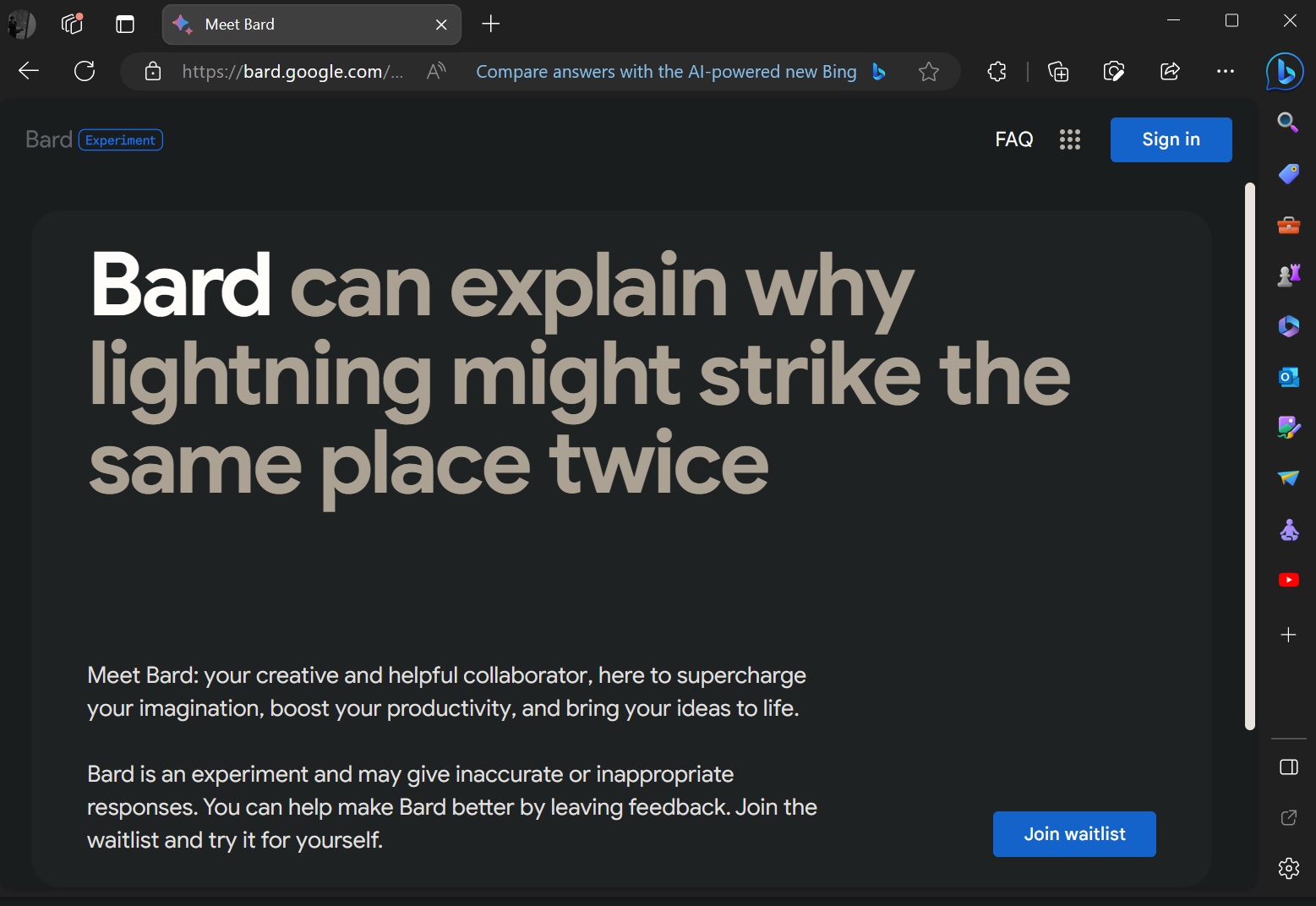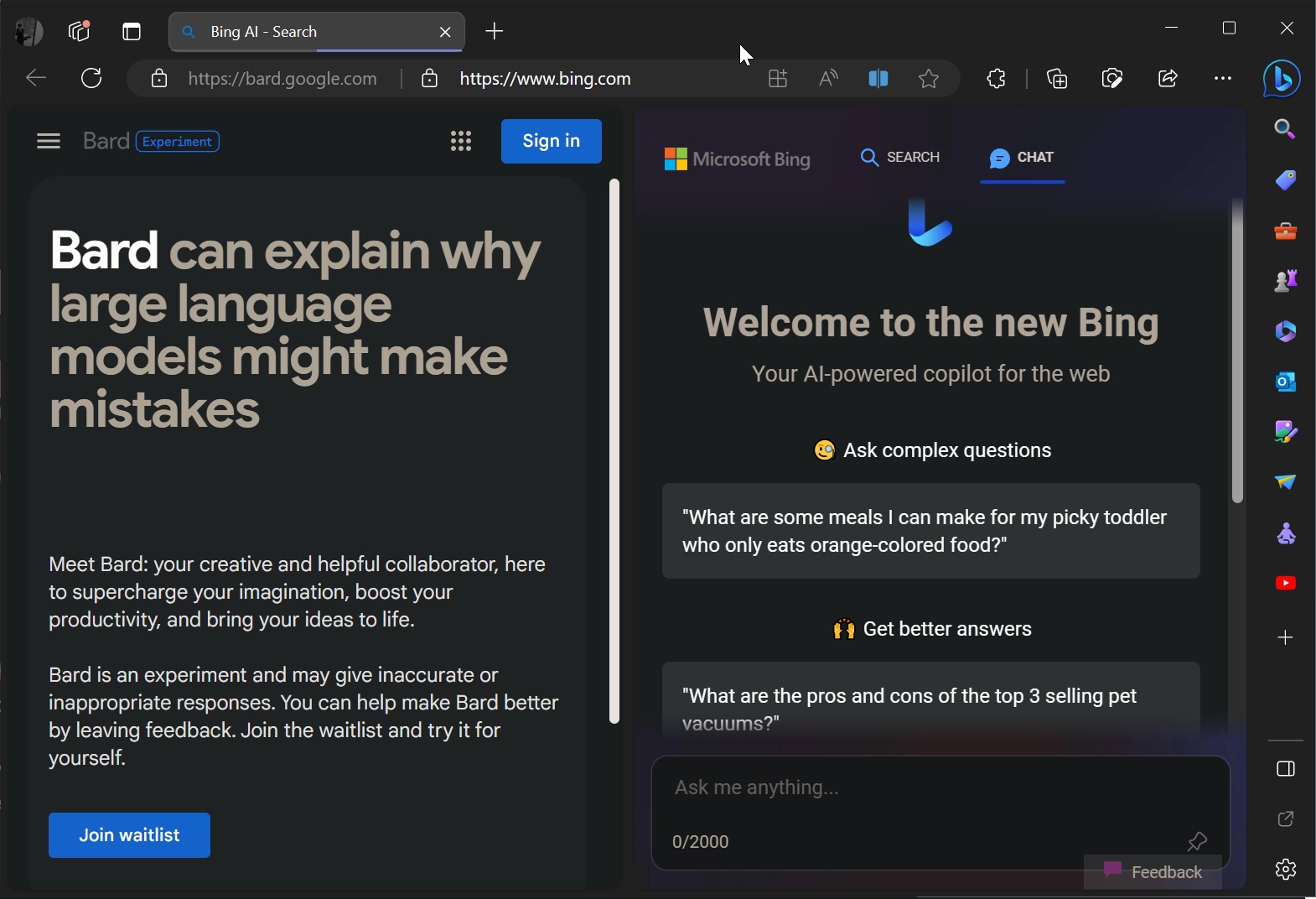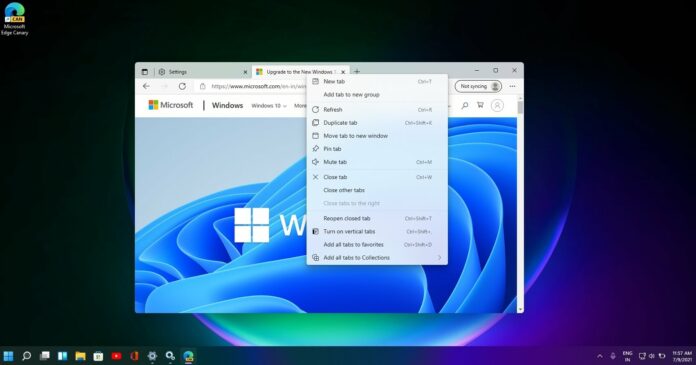In February, Microsoft announced that Bing AI uses OpenAI’s ChatGPT under the hood to bring chatbot to its search engine and Microsoft Edge on Windows 11 and 10. Microsoft has confirmed it has made several improvements to Bing AI to make it more accurate and capable than ChatGPT or GPT-3.5.
Following a recent update to Edge, we have spotted Bing AI ads within the browser’s address bar. This strategy is designed to draw attention to the service and encourage users to explore the AI-driven features that Bing has to offer instead of using Bard.
Microsoft has begun experimenting with showing more ads or recommendations that appear when users visit bard.google.com, which is the homepage of Google’s ChatGPT-like Bard. The pop-up can be distracting and somewhat annoying, but it can be dismissed if you ignore it.

When Bard is open in the browser, the Microsoft Edge address bar pop-up appears, prompting users to “Compare answers with AI-powered Bing.”
By clicking on the pop-up, users can view Bing AI in a split-screen mode alongside Bard, with Bard on the left and Bing AI on the right. Microsoft aims to encourage users to compare the results, as it believes Bing AI performs better than Google Bard.

However, it is impossible to remove the “Bing” icon, which appears in the address bar when Bard is open in the tab. While the company may hope to attract users to Bing AI by directly competing with Google Bard, these ads may be seen as intrusive and could make users feel overwhelmed or irritated.
Google aggressively promotes its services too, just like Microsoft
It’s important to note that Microsoft is not alone in this approach, as Google has also engaged in similar tactics.
Microsoft’s strategy mirrors Google’s past actions, where the search engine giant displayed Chrome ads within Gmail when users accessed the email service using Edge. Google has also been known to promote Chrome through ads in Google Search when visited using Edge, showcasing an even more aggressive marketing approach.
In conclusion, while Microsoft’s decision to display ads targeting Google Bard in the Edge browser could potentially some users, it’s crucial to recognize that Google has engaged in similar practices.





